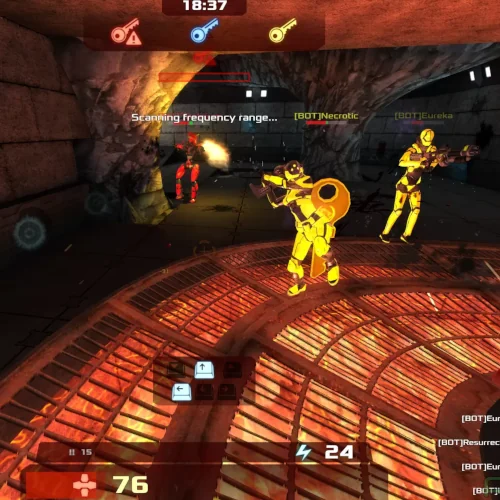An Attempt To Push Ubuntu As A Gaming Platform

Among the sessions scheduled so far (the links though are rather pointless until the event takes place since they just go to blank EtherPads) for the Ubuntu 13.04 Developer Summit spanning two days are the following topics as it pertains to Ubuntu gaming:
Audio Support - "Audio of all forms (stereo, surround, 3D positional, etc.) must work extremely well in Ubuntu."
Longevity of Binaries - "We want to discuss and address considerations on obsolescence of libraries during a game's lifetime and how this works in Ubuntu when compared to other platforms."
Graphics Support - "Graphics in general must work extremely well in Ubuntu (OpenGL specifically)."
Input Devices Support - "Input devices (joysticks and gamepads), low-latency input and full button support for gaming mice and keyboards must work extremely well in Ubuntu."
Multi-Arch Libappindicator - "The libappindicator3 package in Ubuntu 12.04 and 12.10 has not been converted to multi-arch. This causes some pain points in the Valve Steam builds."
Process Clean-Up Actions - "We need to address possible issues with process cleanup not handling some important actions (e.g. video mode restoration after app exit or crash)."
Unity Performance - "Unity costs about 10% in frame rate performance drop when running a game."
Audio Latency - "Audio latency is relatively high on Linux and we need to be competitive with other platforms."
Can Ubuntu make it as a viable gaming platform? Will Ubuntu Linux end up being used in any "Steam Box" console? Linux has a lot of potential to be an interesting and competitive gaming platform, but there's a lot of work ahead to make that happen.
It will be interesting to see what comes out of these Ubuntu gaming sessions at UDS-R, since as many know, Canonical isn't a company that's historically been known to do a lot of low-level upstream development work when it comes to graphics drivers, kernel feature enhancements, and other large technical initiatives for advancing the Linux kernel and related components.
41 Comments

